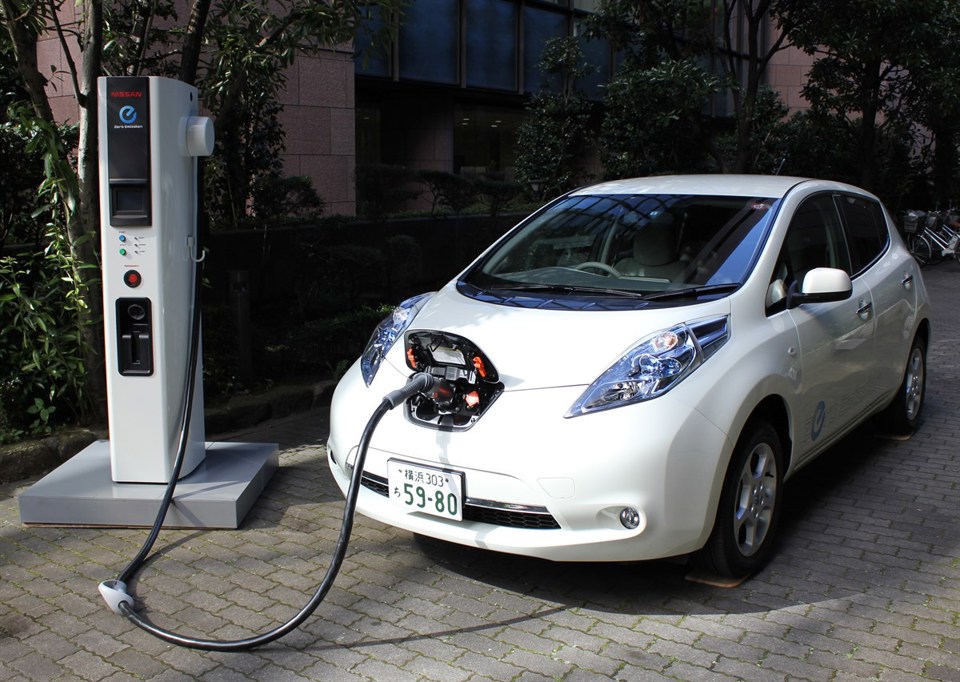The Society of Motor Manufacturers and Traders believes 50% of the market in the UK could be served by an electric vehicle and the Government believes there could be an uptake of up to 10% of the market by 2020.
There were 1,082 pure electric vehicles registered in the UK last year, but it’s likely a proportion of that would have been demonstrators as manufacturers like Nissan, Mitsubishi and Renault launched their first models.
Dealers representing EV brands have invested in facilities and equipment to cater for the technology, but are there profits to be made?
Clearly there’s a price premium for electric and alternatively-fuelled vehicles and the market is in its infancy, but dealers expressed their worries about residual values and where the part-exchange lies in the EV puzzle.
There is a larger profit margin opportunity with hybrids and it is a growing segment with 23,370 units sold last year, an increase of 33.6%.
There are EV customers in the UK, but dealers need to fine tune their database-sifting techniques to find them because they are early adopters with a high income and doing short city trips. Some markets have EVs sewn up, with Jacksons Channel Islands having a captive audience with a 30mph speed limit.
Lisa Ford, Mana Premier Automobiles UK operations director, said: “We are getting customers coming in looking specifically for hybrids. Infiniti currently has the fastest hybrid on the market. It’s good to be green, but it’s got to be practical too.”
Chris Roberts, Thurlby Motors managing director, believes there’s still a lot of mileage left in the combustion engine before demand for EVs will pick up.
Kel Prince, Prince Group chairman, said: “There’s a real danger that if electric vehicles ever do take off, the Government is robbed of fuel tax and they won’t let that disappear.”
Roy Arnold, Fish Brothers’ LCV and business specialist, Nissan and Skoda, believes the 100 mile range on most modern full EVs is still a sticking point for people.
Prince said: “It all hinges on the battery. If they can get the range to 200 miles it could work.”
The industry faces a chicken and egg scenario where a wide reaching charging infrastructure is not in place, so customers will be unwilling to take the EV plunge if it’s not easy to top up.
Michael Smyth, Swansway Garages chairman, believes the focus should be on getting the product right first.
He said: “If you can get the cars right the infrastructure will follow. It will fall into place if the demand is there.”
Ford said: “We’ve put the facilities in place for rapid charging in 30 minutes. I think having commonality with the charging technology across manufacturers would be a good start in moving the segment forwards.”
Dealers discussed the idea of asking customers to pay a fee when using charge points at dealerships. Some are allowing customers to use charge points for free, while others ask for £15 for the quick charge.
A customer using a charge point at a dealership does give dealers more chances to develop a relationship.
Arnold said: “Personally I’d feel a bit guilty if I didn’t pay when I charged my car. Most vehicles will be claiming back the charge price if they’re a company car driver.”
Peter Smyth, Swansway Garages director, said: “The issue with the battery on EVs will clatter residual values. If the car needs a new battery it won’t be worth anything.”
Arnold said: “I don’t think anyone’s against the concept of electric vehicles, but things like the unplanned journey range, part-exchange and used car residuals are a problem.”
After the meeting AM spoke to dealers selling EVs.
Mark Squires, Benfield Motor Group chief executive, said: “I don’t think we should be downbeat or cynical about the take-up of electric vehicles. They were never expected to enjoy instant sales success.
“We liken the electric vehicles story to the evolution of mobile phones. It took a number of years before mobiles were established and look at them today.”
Simon Moulton, CCR Motor Company managing director, is hoping EVs in the market will increase awareness of technology to ready customers for plug-in hybrids.
He told AM: “It’s a good marketing exercise ahead of the Mitsubishi Outlander plug-in hybrid next year which will use similar technology and will still use the charging infrastructure, but have almost limitless range at 150mpg.
“We’re well positioned in Putney for i-Miev sales, but it’s about edu-cating customers.”
Squires thinks the development of battery technology is key with longer ranges available at lower prices to unlock a broader market appeal.
He said: “This development may be 10 years in the making, but Tesla is already demonstrating that you can have a 300 mile range family sedan today.”
Squires agrees that the EV market is a long term game and the technology and products will continue to improve.
He said: “There is clear customer interest in electric hybrids and full electric. More products are becoming available from different manufacturers so the awareness and acceptance of the concept is growing and prices are coming down.
“So 5% to 10% of the market by 2020 doesn’t sound an unachievable target from our point of view.”

















Login to comment
Comments
No comments have been made yet.